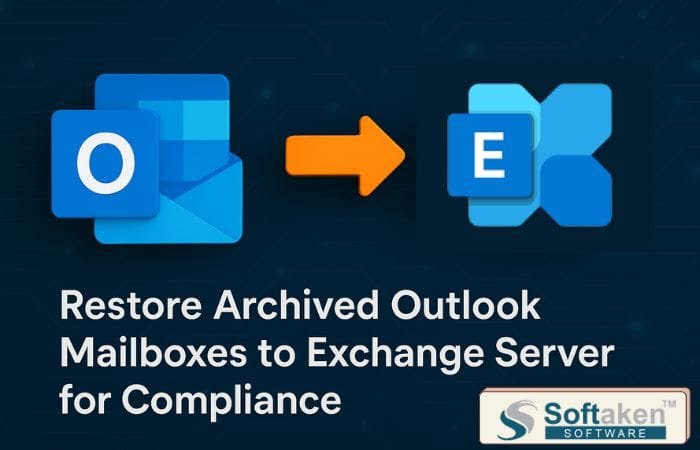IT project management requires strategic planning and technical foresight to achieve success criteria. Most startup founders and entrepreneurs organize the entire IT project management lifecycle with the support of typical product developers, architects, and testers. Though these professionals are valuable during project execution, they might not effectively create a robust strategy, foresee all the tech particularities, and scale the development or migration initiatives with ease. Simply put, startups need a dedicated tech advisory to efficiently plan and scale IT projects and obtain tangible outcomes.
Leveraging Virtual CTO as a Service (CaaS) from reputable firms enables startups to hire dedicated tech consultants. These consultants virtually collaborate with startup managers and internal IT teams to formulate a comprehensive project management strategy aligned with their technical requirements. The strategy formulation includes identifying the right technologies, determining realistic timelines, and outlining key performance indicators (KPIs) for projects. By creating a well-defined IT strategy, virtual CTOs ensure that projects are planned with scalability in mind, facilitating the growth and sustainability of the startups’ IT infrastructure.
CTO as a Service for Startups – An Easy Way to Obtain Tech Leadership
Virtual CTO as a Service is a relatively new C-suite service model delivered by many leading IT service providers. By opting for this service, small-scale businesses are able to access the technical leadership expertise of seasoned CTOs remotely rather than hiring full-time, in-house executives. Hiring and maintaining full-time CTOs come with huge financial commitments, such as salary, insurance, and additional overhead costs. This strains investments and resources of funding-backed startups. Virtual consulting CTO professionals work on a flexible part-time basis, enabling startups to benefit from in-depth technical guidance without straining financial resources. Moreover, hiring these consultants for managing time-intensive IT projects is beneficial because of their specialization in:
- Risk Management – Typically, IT projects possess inherent risks in terms of technological challenges, resource limitations, and others. Virtual CTO consultants are adept at discovering and mitigating these project risks and reducing cost overruns and failures.
- Vendor Management – Virtual CTOs have experience in handling multiple technology vendors and negotiating favorable terms and contracts, ensuring that the startup receives the best possible service.
- Cybersecurity – By implementing robust cybersecurity mechanisms within the tech infrastructure, CTOs secure sensitive project data and intellectual property rights. Some standard cybersecurity mechanisms consultants implement include firewalls, intrusion detection systems, and incident response tools.
Key IT Project Management Aspects Handled by Virtual CTO Consultants
As stated before, virtual CTO experts prioritize strategy formulation as the first stage of IT project management, since it ensures greater project alignment with technical requirements. Consequently, CTOs help startups with other project management aspects, such as:
1. Determining Project Goals and Objectives
Objectives act as the prerequisite for project planning, execution, monitoring, and evaluation. When objectives are vague and uncertain, IT teams might work on tasks or requirements that are beyond the project’s original scope. This scope creep scenario causes confusion/misalignment among tech personnel, resulting in delays and potential project failure.
Virtual CTO professionals collaborate with the startup’s stakeholders and IT teams to understand their short/long-term project goals and translate them into SMART (specific, measurable, attainable, relevant, and time-bound) objectives. The SMART objectives serve as a constant reference point for managers, IT developers, and other project associates, ensuring all the tasks remain on track. This approach aids startups in overcoming project scope creep and misalignments.
2. Developing Project Management Framework
Before stepping into project execution, it is crucial to outline roles, responsibilities, and processes involved in a project. With in-depth expertise in IT project execution, virtual CTO advisory experts create a project management framework mentioning obligatory workflows, task expectations, responsibilities, and others. This framework educates project teams and associates about their tasks and the overall project objectives, thereby minimizing misperceptions.
While creating the project management framework, vCTOs outline the reporting and communication mechanisms to be followed by IT workers and associates. This promotes project collaboration and helps stakeholders gain better clarity into project status. Moreover, the project management framework enables startup managers and recruitment specialists to understand the feasible workforce and resource requirements for IT projects.
3. Building Technical Team
Based on the outcomes of the project management framework, virtual CTOs recommend the workforce and resources required to accomplish projects in the given timeframe. Even virtual CTOs help startups source and recruit the right IT talent according to their project requirements. They leverage their industry connections and networks to discover potential candidates with diverse technical skills. By collaborating with hiring managers, they create and post job openings on reliable portals, ensuring a targeted and active hiring process.
After hiring and forming the team, virtual CTOs deliver technical orientation for newly hired employees. During this orientation, CTOs provide new hires with an in-depth understanding of technologies, platforms, and systems used for projects. They also organize knowledge transfer sessions with the help of existing IT team members to ensure greater project adaptability for new hires.
4. Auditing
During project execution, virtual CTOs regularly review the project’s flow, progress, and outcomes to ensure alignment with the predefined objectives. By reviewing and monitoring these KPIs consistently, vCTOs enable project managers to make necessary adjustments and optimize project execution performance.
In addition to KPI monitoring, virtual CTOs perform auditing to make IT projects highly compliant with relevant industry standards, policies, and regulatory requirements. In the context of IT project management, maintaining compliance is quintessential, particularly when dealing with cloud migration or software development initiatives. Regular audits help CTOs spot any deviances from compliance requirements during project execution and take appropriate corrective measures to eliminate legal and regulatory complications, thus safeguarding the startup’s reputation.
Closing Thoughts
Hiring a trustworthy virtual CTO services provider for IT project management offers startups a range of advantages that are essential for their success and growth. From delivering high-level technical guidance to ensuring scalability, these C-suite executives reduce risks at all stages of the IT project management lifecycle and improve performance outcomes. Above all, they leverage a range of innovative technologies and services during product development projects and help startups gain a first-mover advantage in their domain.






Tech content on this site may include contributed articles and partnerships with industry voices. Learn more in our Editorial Policy.